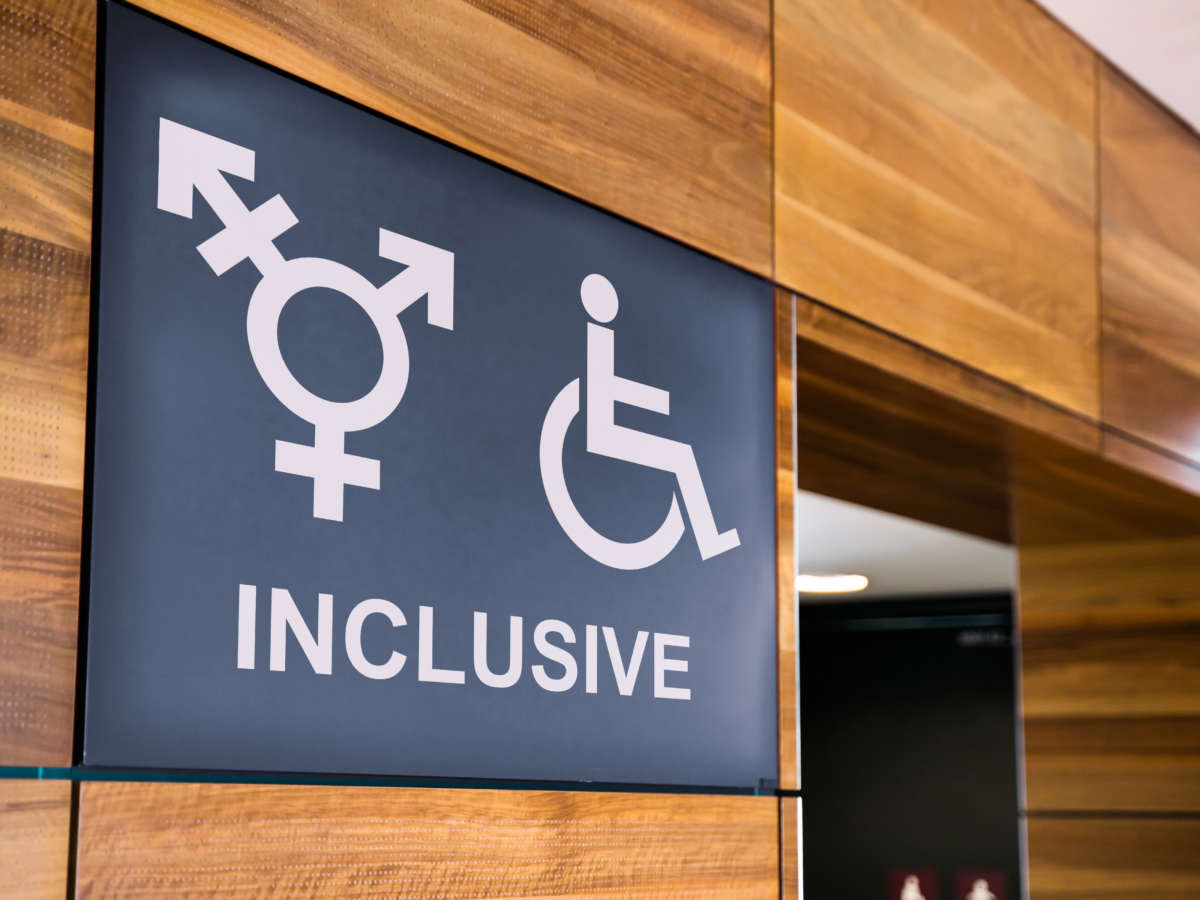A federal judge has struck down an anti-trans law in Tennessee that required business owners offering inclusive restroom options to put up signage using decidedly non-inclusive language.
House Bill 1182 was signed into law one year ago, and went into effect on July 1, 2021. One week after that, Bob Bernstein, the owner of a restaurant in Nashville called “Fido,” filed a lawsuit alongside the ACLU of Tennessee.
Bernstein’s restaurant allows patrons to decide for themselves which restroom they feel most comfortable using. However, the notice that the new law required all businesses to post would suggest that his establishment was not inclusive of all, Bernstein said.
The mandated notice, to be posted in all capital letters, read as follows: “NOTICE: THIS FACILITY MAINTAINS A POLICY OF ALLOWING THE USE OF RESTROOMS BY EITHER BIOLOGICAL SEX, REGARDLESS OF THE DESIGNATION ON THE RESTROOM.”
A new law in Tennessee requires this sign to be hung in businesses that let trans people use their restrooms and it feels like it was designed specifically for the experience of seeing it in a mournful Smithsonian exhibit pic.twitter.com/s4xfNmb7my
— Gillian Branstetter (@GBBranstetter) May 19, 2021
Business owners in violation of the law (for refusing to display the notice by their restrooms), could be jailed up to six months and fined up to $500.
U.S. District Judge Aleta A. Trauger filed an injunction against the enforcement of the law last year. On Tuesday, she issued a ruling finding that the law was indeed unconstitutional, on the grounds that it violated business owners’ free speech rights.
“It would do a disservice to the First Amendment to judge the Act for anything other than what it is: a brazen attempt to single out trans-inclusive establishments and force them to parrot a message that they reasonably believe would sow fear and misunderstanding about the very transgender Tennesseans whom those establishments are trying to provide with some semblance of a safe and welcoming environment,” Trauger wrote in her opinion.
Lawyers for the state said the rule was intended to be neutral, and that any concern about the language being harmful was imaginary. However, their use of the term “biological sex,” which anti-trans activists frequently use to disregard a person’s identity and pronouns, suggested otherwise.
“Transgender Tennesseans are real. The businesses and establishments that wish to welcome them are real. And the viewpoints that those individuals and businesses hold are real, even if they differ from the views of some legislators or government officials,” Trauger wrote.


